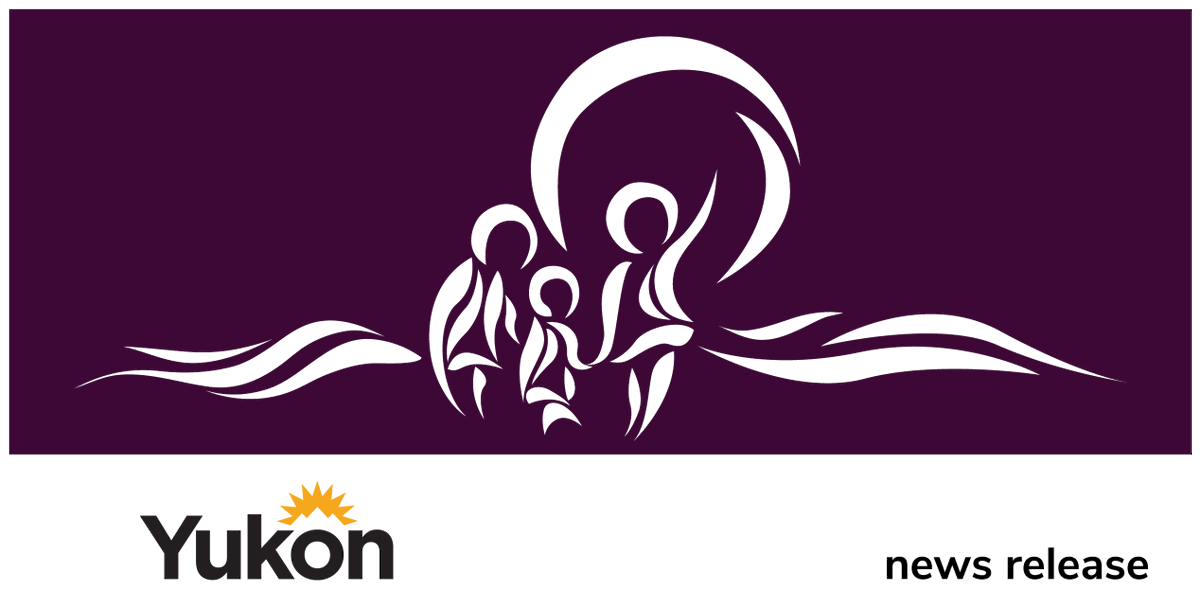
The Regulation identifies such items as licensing requirements; required professional liability insurance; the range of services midwives can legally provide; and the creation of an advisory committee. The Midwifery Regulation, standards of practice and code of ethics will take effect on April 15, 2021.
The Government of Yukon has approved a regulatory framework for the practice of midwifery in the territory, marking the completion of a key step in the initiative to regulate, fund and integrate midwifery services into Yukon’s healthcare system.
The new Midwifery Regulation, under the Health Professions Act, will work alongside standards of practice and a code of ethics to assure Yukoners that licensed midwives in the territory have met qualification standards and that there are rules in place to support the safe practice of midwifery in Yukon.
Under the Regulation, licensed midwives will be able to practice as they do elsewhere in Canada, supporting clients through pregnancy, birth and the post-partum period.
The Midwifery Regulation, standards of practice and code of ethics will take effect on April 15, 2021. The Department of Health and Social Services continues to work towards the launch of funded and regulated midwifery services in fall 2021.
"I am proud to announce today that we have completed the Midwifery Regulation that will allow licensed midwives to safely support mothers through pregnancy, birth and the post-partum period. This is an important step towards realizing our government’s commitment to providing regulated and funded midwifery services as a birthing option for Yukoners." Minister of Community Services John Streicker
"We are very excited to have the regulatory framework finalized. A lot of work and input from health care professionals and the community have led us to this point. We are very grateful for their expertise and look forward to working with them in partnership as we move forward to integrate midwifery care into the existing health care system in a way that is safe, sustainable and complements existing services." Minister of Health and Social Services Pauline Frost
"After many years of hard work of advocacy, CMAY is very excited to see the regulations come through. We know that there is still much work to do and are looking forward to development of Standards of Practice, and especially the implementation of Midwifery and midwives actually working as part of Yukon Health Care aligned with the Canadian Model of Midwifery Care." Community Midwifery Association Yukon Interim President Christina Kaiser
The development of the regulatory framework for midwifery in Yukon involved extensive engagement, consultation and research. This included: seeking the advice of a Midwifery Advisory Committee made of up of key healthcare partners; public engagement with Yukoners, midwives, physicians, and nurses; consultation with the Canadian Association of Midwives and regulators of midwifery in other Canadian jurisdictions; incorporation of best practices from other Canadian jurisdictions; and consideration of Yukon’s unique context.
Yukon’s Midwifery Regulation establishes a regulatory framework similar to British Columbia (B.C.), allowing the adoption of many of B.C.’s standards of practice as initial Yukon standards, as well as other initial standards unique to Yukon. Over time, the Registrar of Midwives will work with the advisory committee established under the Regulation to review and adapt standards as necessary to reflect the evolution of midwifery practice in Yukon.
The Regulation identifies such items as licensing requirements; required professional liability insurance; the range of services midwives can legally provide; and the creation of an advisory committee.
The midwifery program is expected to take a phased approach to the implementation of regulated and funded midwifery services in Yukon by first focusing on establishment of full midwifery services in Whitehorse.
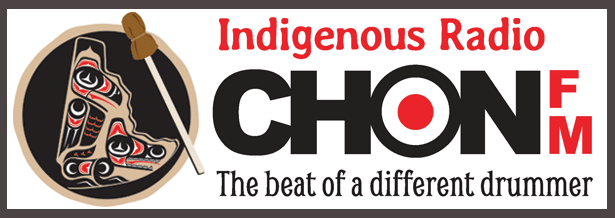
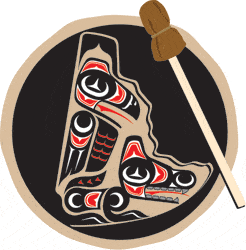
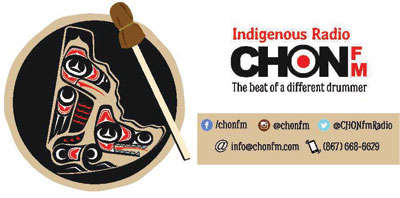
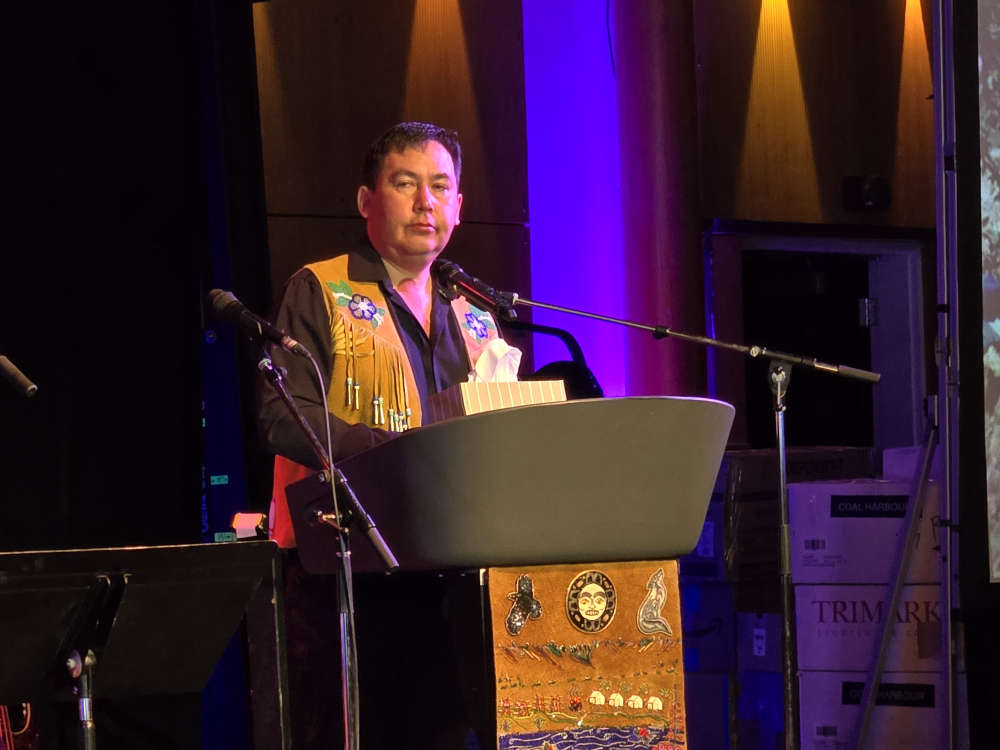 Kwanlin Dün First Nation celebrates 20th Anniversary of Final Agreement
Kwanlin Dün First Nation celebrates 20th Anniversary of Final Agreement
 Yukon RCMP Traffic Services are investigating a collision between a police vehicle and a cyclist
Yukon RCMP Traffic Services are investigating a collision between a police vehicle and a cyclist
 Former teacher calls out education minister for inaction
Former teacher calls out education minister for inaction
 Yukon RCMP issue arrest warrant
Yukon RCMP issue arrest warrant
 Yukon Native Hockey Tournament kicks off its 45th anniversary with more teams than ever before
Yukon Native Hockey Tournament kicks off its 45th anniversary with more teams than ever before
 Whitehorse RCMP search for missing man
Whitehorse RCMP search for missing man
 B.C. man, two Watson Lake residents arrested on warrants in Whitehorse
B.C. man, two Watson Lake residents arrested on warrants in Whitehorse
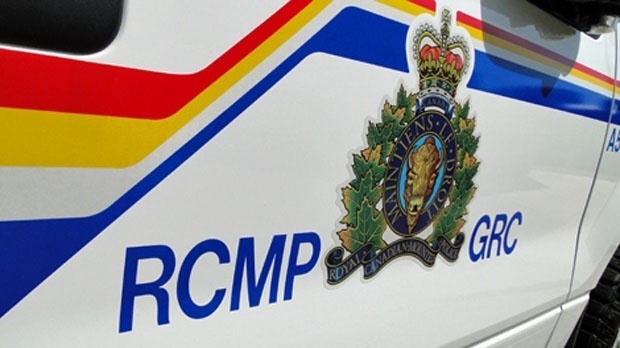 Ross River RCMP arrest two men in separate, unrelated investigations involving stolen rifles
Ross River RCMP arrest two men in separate, unrelated investigations involving stolen rifles
 Medical Staff Association president raise "significant concerns" surrounding acute care at Whitehorse General
Medical Staff Association president raise "significant concerns" surrounding acute care at Whitehorse General
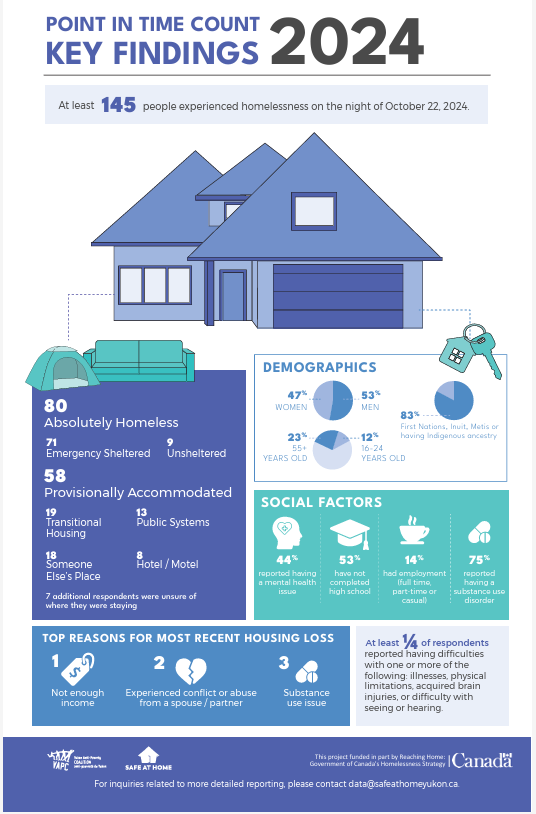 Whitehorse count indicates 83 per cent of homeless in 2024 were Indigenous
Whitehorse count indicates 83 per cent of homeless in 2024 were Indigenous
 Whitehorse RCMP seek public's help in locating missing 73-year-old man
Whitehorse RCMP seek public's help in locating missing 73-year-old man
 CYFN opens new wellness centre in Whistle Bend
CYFN opens new wellness centre in Whistle Bend
 'Old Crow a Philosophy' makes global premiere at YAC
'Old Crow a Philosophy' makes global premiere at YAC
 Yukon First Nations Culture and Tourism Association cancels events for 2025, including Adäka Festival
Yukon First Nations Culture and Tourism Association cancels events for 2025, including Adäka Festival
 Whitehorse residents and Yukon NDP speak out against a proposed transit fare hike
Whitehorse residents and Yukon NDP speak out against a proposed transit fare hike
 Diane Strand wins Haines Junction mayoral byelection
Diane Strand wins Haines Junction mayoral byelection
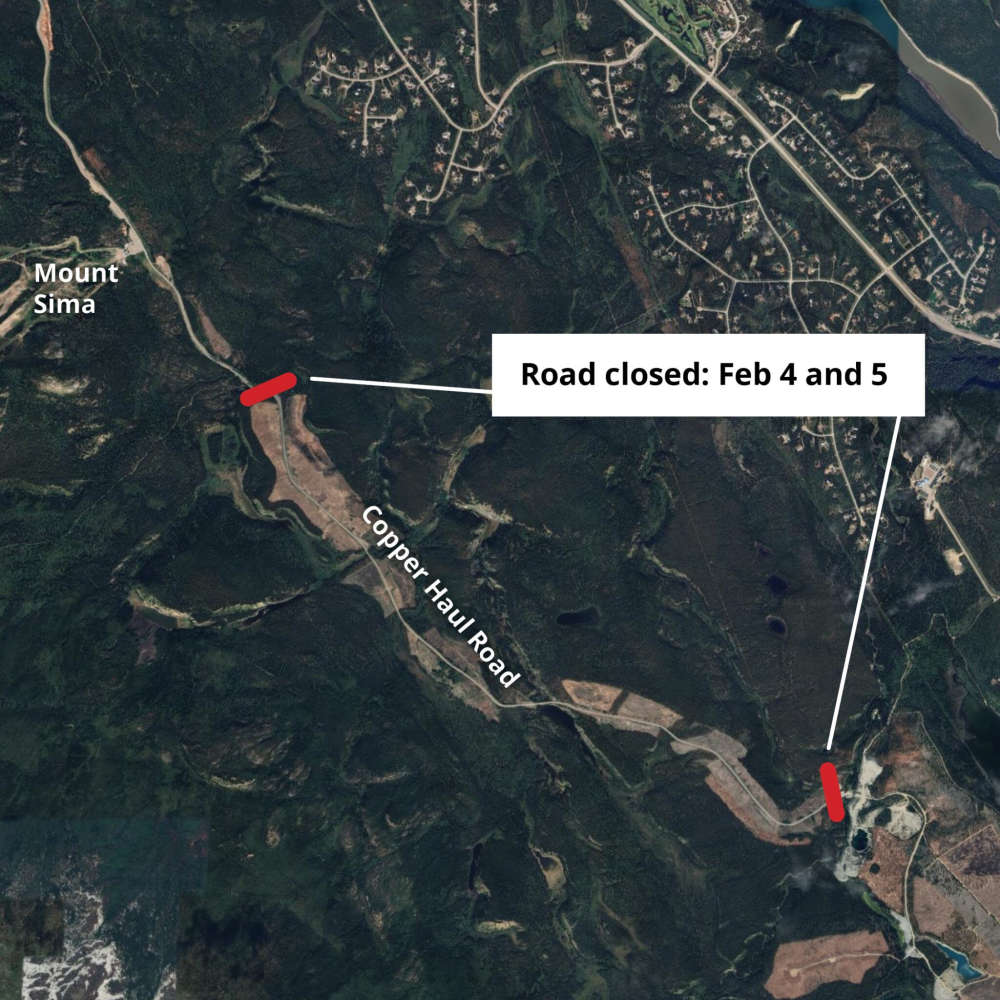 Copper Haul Road closure announced for bridge repairs
Copper Haul Road closure announced for bridge repairs
 Yukon Government and Canadian Government partner to boost local businesses
Yukon Government and Canadian Government partner to boost local businesses